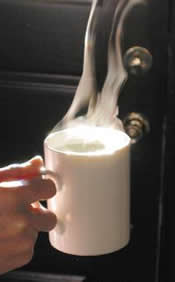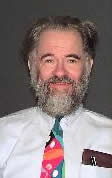Online Physics for Teachers
Electricity and Magnetism Course

There are 10 units, as described below. Each unit starts with an exploration (simple qualitative investigations) of the subject of the unit, followed by two activities (more formal investigations, frequently having a quantitative component). The sections "About ..." are a few pages of text and pictures explaining the relevant scientific concepts. The final section "Discussion of ..." presents some questions for the participants to discuss. They email their discussion to the workshop instructors. In addition, many sections have an additional page "Why study (the subject of this unit)?"
Here are the activities of the workshop. Links are given to some sample pages.
- Temperature
- Thermal equilibrium
Exploring thermal equilibrium; Equilibration of things initially at different temperatures - Thermal expansion
Why study thermal expansion?
Exploring thermal expansion; Making a temperature sensor
Making a thermometer - "Liquid crystal" thermal sensing sheet
Why study thermal sensing sheet?
Exploring "Liquid crystal" thermal sensing sheet; Calibrating the liquid crystal - Thermal conduction
Why study thermal conduction?
Is glass cool? Is fur warm? (Exploration of thermal conduction); How long does your drink stay hot? Find the conductor (a puzzle based on thermal conduction) - Convection and Radiation
Why study convection and radiation?
Exploring convect - Conversion of other forms of energy into thermal energy
Exploring energy conversions; Different methods to transfer heat; Does color affect how materials absorb heat? - Phase change
Why study phase changes?
Exploring change of phase; What happens when water evaporates? What is the temperature pattern of ice water as the ice melts?
The discussion questions page for this unit - How temperature and energy are related
Why study thermal energy?
Exploring thermal energy; Calorimetry 1: If two objects are at the same temperature, do they both contain the same amount of energy? Calorimetry 2: Sharing heat among different objects; Calorimetry 3: Effect of using different materials - Irreversibility
Mixing and unmixing (exploration of irreversibility); How many combinations? Flipping a coin: random and uncorrelated events; A model for equilibration
Joseph P. Straley
Department of Physics & Astronomy
University of Kentucky
Lexington, KY 40506-0055
(859) 257-3197
sciworks@pa.uky.edu
Department of Physics & Astronomy
University of Kentucky
Lexington, KY 40506-0055
(859) 257-3197
sciworks@pa.uky.edu

